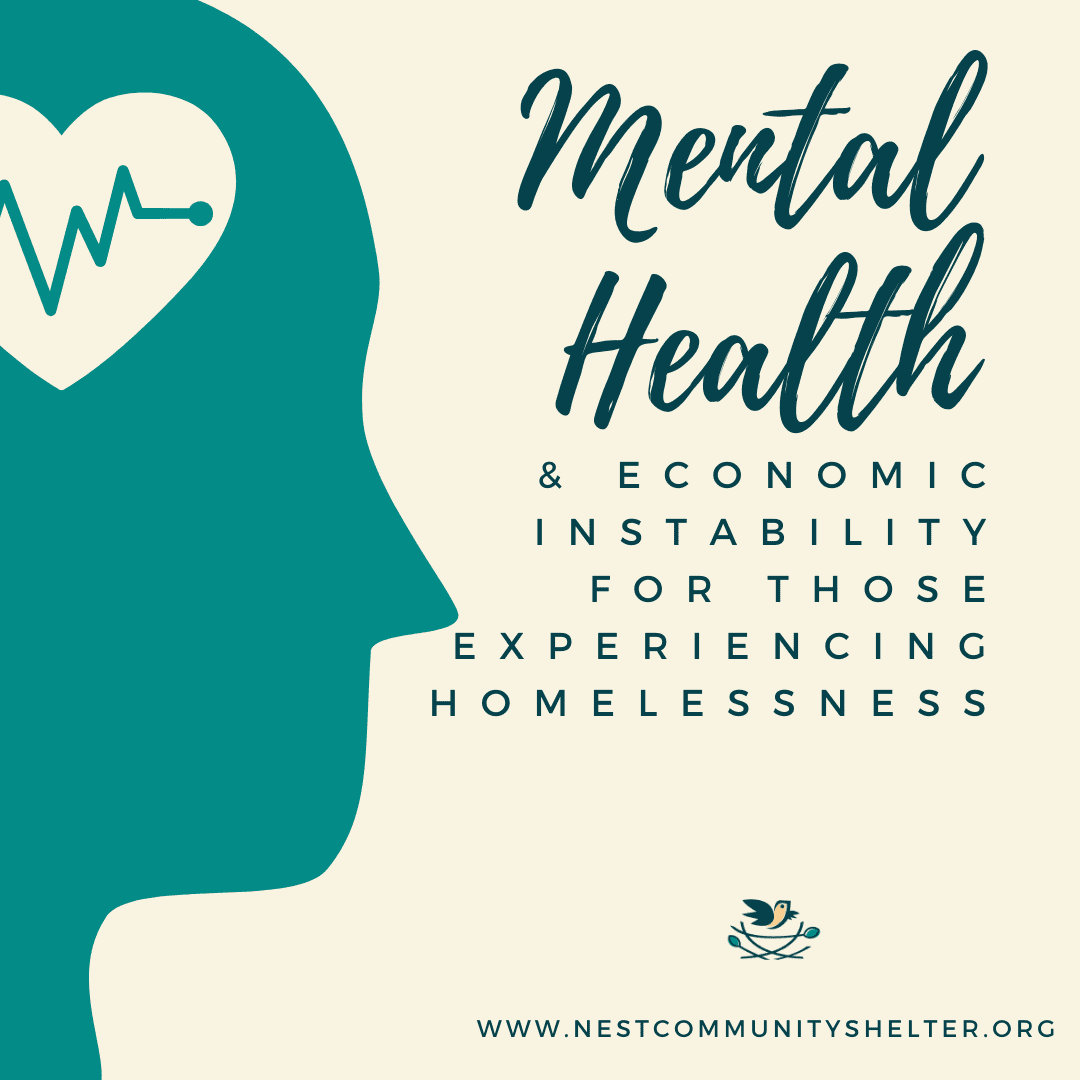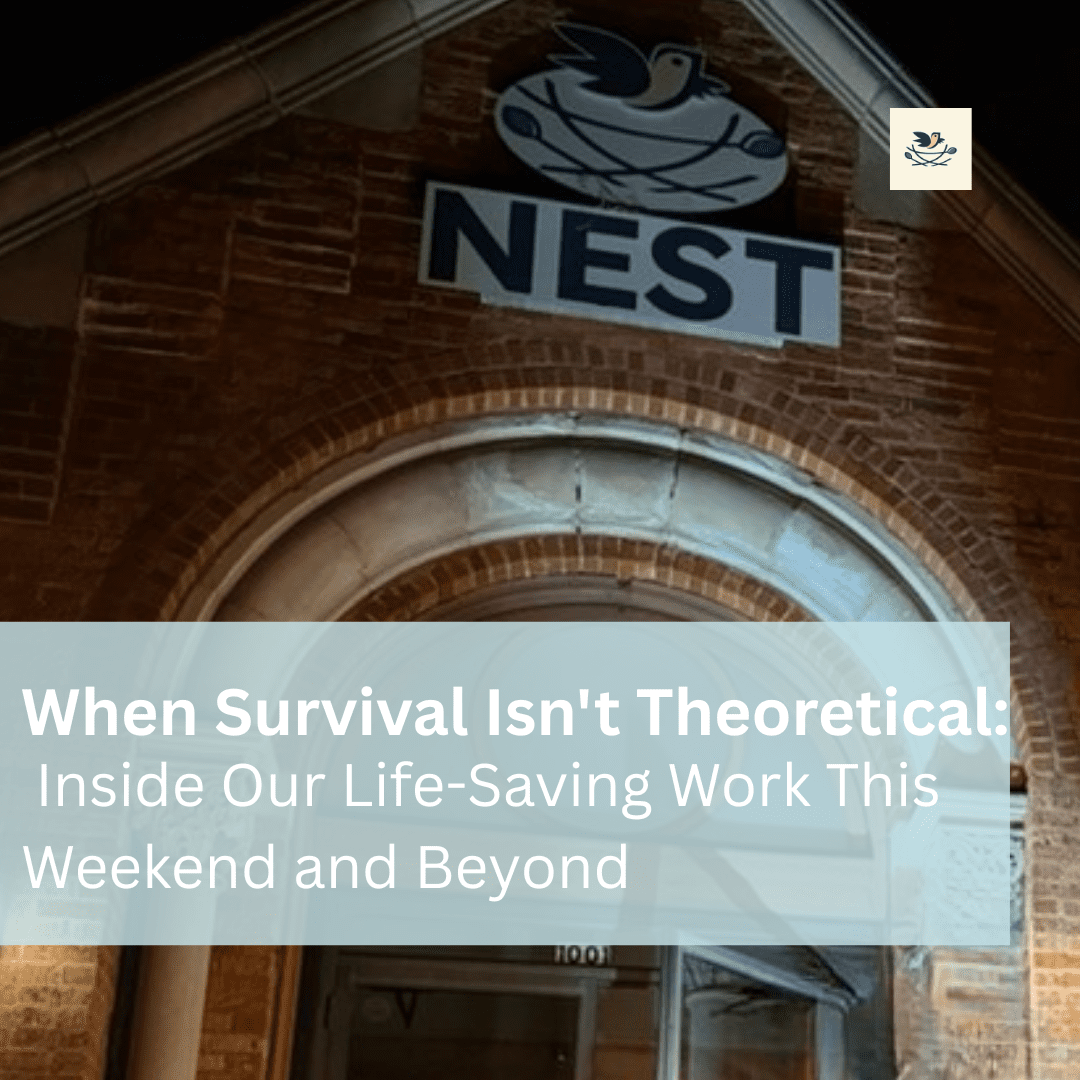
Economic instability casts a long and ominous shadow across the globe and in our own communities, affecting vulnerable populations like the unhoused and those at risk of becoming unhoused. The confluence of soaring housing costs, stagnant wages, and limited job opportunities has created a perfect storm, exacerbating mental health issues among those on the fringes of stability. Today, we’ll explore the disheartening statistics that underscore the gravity of the situation and shed light on the cycle of homelessness and declining mental health.
Economic Realities:
According to recent statistics by the Substance Abuse and Mental Health Services Administration, more than 35% of American renters allocate over 30% of their income to housing costs and utilities. This alarming trend results from the relentless rise in rent prices and stagnating wages, especially in specific trades and hourly wage workers. As the cost of living outpaces income growth, individuals find themselves teetering on the edge of financial precarity. While this sobering statistic is a national figure, these challenges persist locally.
Local Examples:
In our own backyard, focusing on Northern La Porte County, let’s take a closer look at the housing crisis in the town of Michigan City and neighboring La Porte. According to the website Rent.com, the average studio apartment in Michigan City commands a hefty price of $712. Per month, while a 1-bedroom apartment costs $820., and a 2-bedroom apartment comes in at $1,147. Similarly, in La Porte, the cost of living is no less daunting, with studio apartments averaging $1,000., 1-bedroom apartments at $1210., and 2-bedroom apartments at $1,427. When we look at the state minimum wage of $7.25 per hour, a 40-hour work week grosses $290 before taxes and other standard withholdings. These figures exemplify the acute strain on residents, particularly those with limited financial resources and limited abilities to secure lower-wage positions. Our area is not unique to this situation, the issue of affordable housing is a national issue, as communities across the country grapple with providing affordable housing. Simply put, staying housed feel unobtainable to some, thus leading to a life out on the streets, where mental health deteriorates and a vicious cycle of mental health and homelessness combine to keep those experiencing homelessness in a constant state of crisis.
Challenges Faced by the Unhoused:
Securing and maintaining gainful employment becomes a difficult obstacle for individuals experiencing homelessness. The lack of a stable address poses a significant barrier to job seekers, as employers often require a fixed residence for contact and documentation purposes. Additionally, the day-to-day challenges of survival – finding food, shelter, and maintaining personal hygiene – take precedence, leaving little time and energy for pursuing employment opportunities. Securing regular paying work is also complicated by the need for dependable transportation to work. These are significant barriers that many of our shelter guests face when trying to obtain work and provide for themselves. The the social stigma of homelessness when combined with the immeasurable stress of this complicated living situation make mental health issues such as depression, anxiety and substance abuse issues more likely.
The Mental Health Toll:
The intersection of economic instability, homelessness, and mental health is devastating. The constant struggle to meet basic needs, coupled with the despair of uncertain futures, contributes to a decline in mental health among the unhoused. Depression, anxiety, and other mental health issues become pervasive, trapping individuals in a vicious cycle where mental health challenges make it even more difficult to escape homelessness. For those experiencing homelessness, the daily struggle to meet basic needs such as food, clothing, and shelter can feel insurmountable, and these struggles take a devastating toll on one’s mental health. When the individual is focused solely on meeting their basic needs, their mental health becomes a secondary focus for many. These living conditions often bring to light underlying mental health conditions that were brought on by extreme stress, substance abuse, or anxiety. The toll that this lifestyle takes on those experiencing it can be catastrophic. At Nest Community Shelter, we work with our guests by connecting them to community partners with specially trained staff to begin to treat the underlying causes of mental illness and help those seeking help a path towards a recovered, healthy lifestyle.
Breaking the Cycle:
Addressing the intertwined issues of economic instability, homelessness, and declining mental health requires a comprehensive and empathetic approach. Efforts towards affordable housing initiatives, living wage advocacy, and mental health support services are key to a healthy community for all. Continued collaboration between government agencies, non-profit organizations, and the private sector is crucial to creating sustainable solutions that break the cycle and provide a lifeline for those caught in its grip. At Nest Community Shelter, we witness the convergence of these struggles daily as our unhoused guests work towards a healthier, more economically sustainable future.
The undeniable link between economic instability and homelessness, coupled with its profound impact on mental health, demands urgent attention. As we navigate these complex issues, as an organization and a community, fostering compassion, awareness, and collaboration is critical to building a more equitable society where economic stability is not a privilege but a right for all, thus reducing the strain on the mental health of our community.




